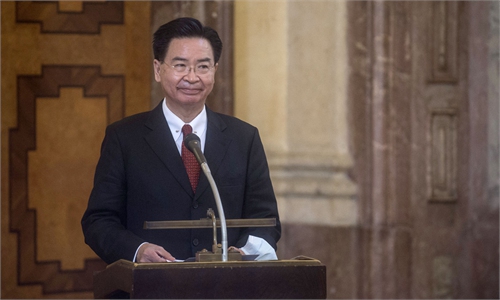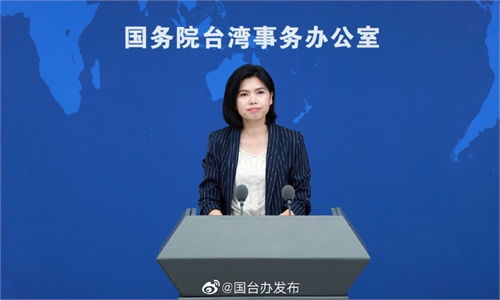Mainland slaps punishment for diehard Taiwan secessionists; detailed measures showcase reunification irresistible
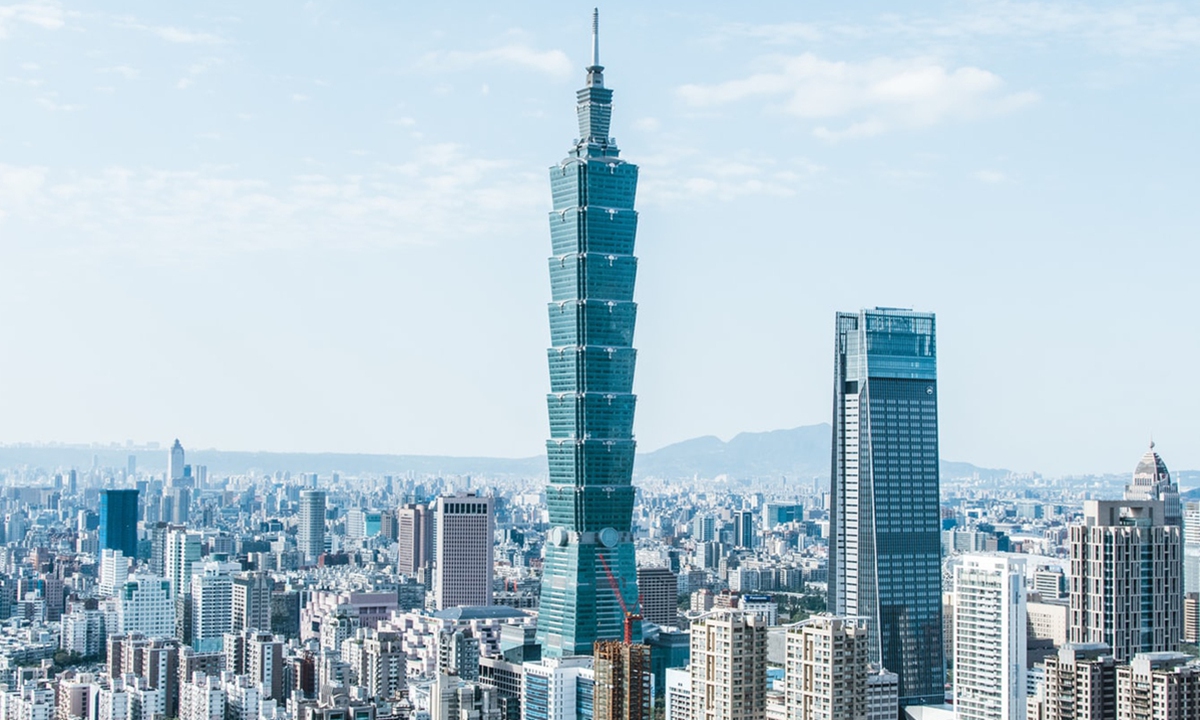
Taiwan Photo: Unsplash
The Chinese mainland on Friday announced specific measures to punish diehard secessionists from the island of Taiwan, including prohibiting them and their families from entering the mainland and the Hong Kong and Macao special administrative regions, and restricting their associated institutions from cooperating with organizations and individuals in the mainland for economic benefits, and they will be persecuted for life long for criminal liability.
Experts said the move on Friday is just the beginning to hold secessionists accountable, and shows that the complete reunification of the country is irresistible as the mainland is taking concrete measures on laws to remove obstacles. Those who attempt to split the island of Taiwan from the motherland would have no place to hide, and will face a life-long pursuit for their crimes.
Aside from entry ban, we would not allow the companies or paymasters of these diehard secessionists to profit from Chinese mainland, and will also take other measures to punish them, Zhu Fenglian, spokesperson of the Taiwan Affairs Office of the State Council, told a press conference on Friday.
Zhu named three secessionists - Soo Tsing-tshiong, You Si-kun and Joseph Wu - saying that a few of the secessionists on the island have been hyping cross-Straits confrontations, maliciously attacking the mainland, colluding with foreign forces to split China, severely affecting cross-Straits stability, and damaging the Chinese people's interests.
Zhu did not note the name of Taiwan's regional leader Tsai Ing-wen on Friday and neither did she said whether Tsai is on the list.
Soo, the leader of Taiwan's "executive authority," You, a politician of the Democratic Progressive Party and head of Taiwan's legislative body, and Wu, the leader of the external affairs authority of Taiwan, have been actively pushing the de facto independence of the island.
"We want to tell these diehard secessionists that those who forget their heritage, betray their motherland, and seek to split the country will come to no good end and will be disdained by the people and condemned by history. The Chinese mainland will seek criminal responsibility for them, valid for life," said Zhu.
Calling the names of the diehard secessionists of the island of Taiwan and carrying out measures to punish them is just the beginning and the Chinese people would give no mercy in dealing with the scum who forget their heritage and betray the motherland, Junzhengping studio affiliated to the PLA Daily said in a commentary released soon after the press conference of the Taiwan Affairs Office.
Experts noted that for a while some individuals in the island of Taiwan are making personal gains from the peaceful development of cross-Straits relations, but fooling the residents in the island and claiming to "seek independence for the benefit to Taiwan." The measures announced Friday would prevent two-faced individuals from making money from the mainland while damaging the interests of the Chinese people.
For example, DPP "legislator" Ho Chih-wei, whose family business Sunny Bank is controlled by his mother and stepfather, owns a Taiwan-funded financial leasing company in the mainland, while Ho advocates secession in Taiwan and called the mainland a "rival country," according to Taiwan-based experts.
Some Taiwan TV dramas sponsored by secessionist Sanlih Entertainment Television in Taiwan is shown on the mainland, they noted.
The Union Bank of Taiwan, the family business of the founder of secessionist newspaper Liberty Times Lin Rong-San, is also operating in the mainland with credit card and UnionPay card services.
Some people openly advocate secession in Taiwan, but their relatives have been operating businesses in the Chinese mainland for many years. Some Taiwan businessmen have never prevented their relatives from pursuing secession or anti-mainland activities, said Shaw Chong-hai, a columnist and former head of the school of social sciences at Chinese Culture University in Taiwan.
"Now it is very simple: if your relatives in the island advocate secession, then you cannot go to the Chinese mainland to make money."
In the future, as long as anyone has secessionist tendencies or openly supports secessionism, whether in word or deed, he will not be able to obtain an entry certificate to the mainland and Hong Kong and Macao. The sanction scope can be much broader than just the DPP camp, Shaw said.
Henceforth, institutions operating in the Chinese mainland, Hong Kong and Macao will shun the separatists, cutting them and their families from much of their wealth, experts said.
"Sanctions are strong, which may affect the political ecology of the island of Taiwan and the judgment of the Taiwan people on cross-Strait relations," Wang Jianmin, a senior cross-Straits expert at Minnan Normal University, East China's Fujian Province, told the Global Times on Friday.
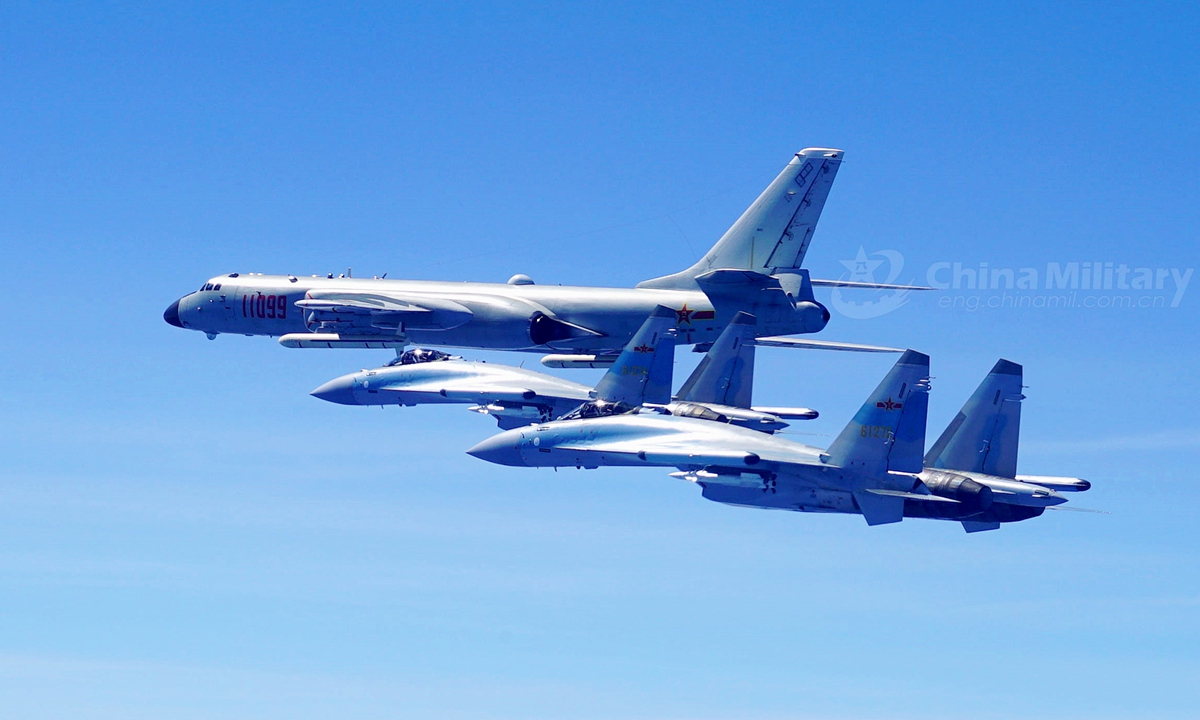
Two Su-35 fighter jets and a H-6K bomber fly in formation on May 11, 2018. The People's Liberation Army (PLA) air force conducted patrol training over China's island of Taiwan on Friday. Su-35 fighter jets flew over the Bashi Channel in formation with the H-6Ks for the first time, which marks a new breakthrough in island patrol patterns, said Shen Jinke, spokesperson for the PLA air force.Photo:China Military
No place to hide
Zhu also pointed out that the secessionists of the island of Taiwan would be persecuted for criminal liability, valid for life, which experts said highlights the mainland's resolve for reunification, and there will be no place to hide for those impenitent secessionists.
The limitation of prosecution in the Criminal Law is usually beyond 20 years, while a lifelong period for secessionists on the island of Taiwan, which shows that no matter where these secessionists hide and no matter how long they hide after reunification, they would be hunted down, an expert on Anti-Secession Law, who asked for anonymity, told the Global Times.
The expert noted that the measures only target a few secessionists. Those who have been coerced or have not been engaged in secession would be spared.
This is also the first time for the Chinese mainland to take punitive measures against secessionists since the diehard Taiwan secessionists list was unveiled by Hong Kong media in 2020. It would not only deter secessionists but also isolate them from residents in the island, said the expert, noting that more detailed measures on the island of Taiwan are expected to be carried out to promote reunification of the motherland.
Some mainland experts said releasing the list of diehard Taiwan secessionists is a warning, and slapping sanctions on them shows a warning is not empty words. And the Chinese mainland has moved from warning Taiwan secessionists to punishing and crushing them with concrete action, and there will be more such moves in the future.
The sanctions against diehard Taiwan secessionists are currently limited to the mainland and Hong Kong and Macao SARs, but experts say the scope is very likely to be expanded.
It was not ruled out that the mainland may extend its accountability to any place where Taiwan secessionists go. In the short term, the mainland can restrict secessionists from taking various means of transport in the mainland, Hong Kong and Macao SARs.
A few diehard secessionists, like Soo Tsing-tshiong and You Si-kun, immediately responded to mainland, calling the sanctions "medals of honor." But their courage may only be words, and they will remain scared as their relatives who have relations with the mainland would also be influenced, experts said.
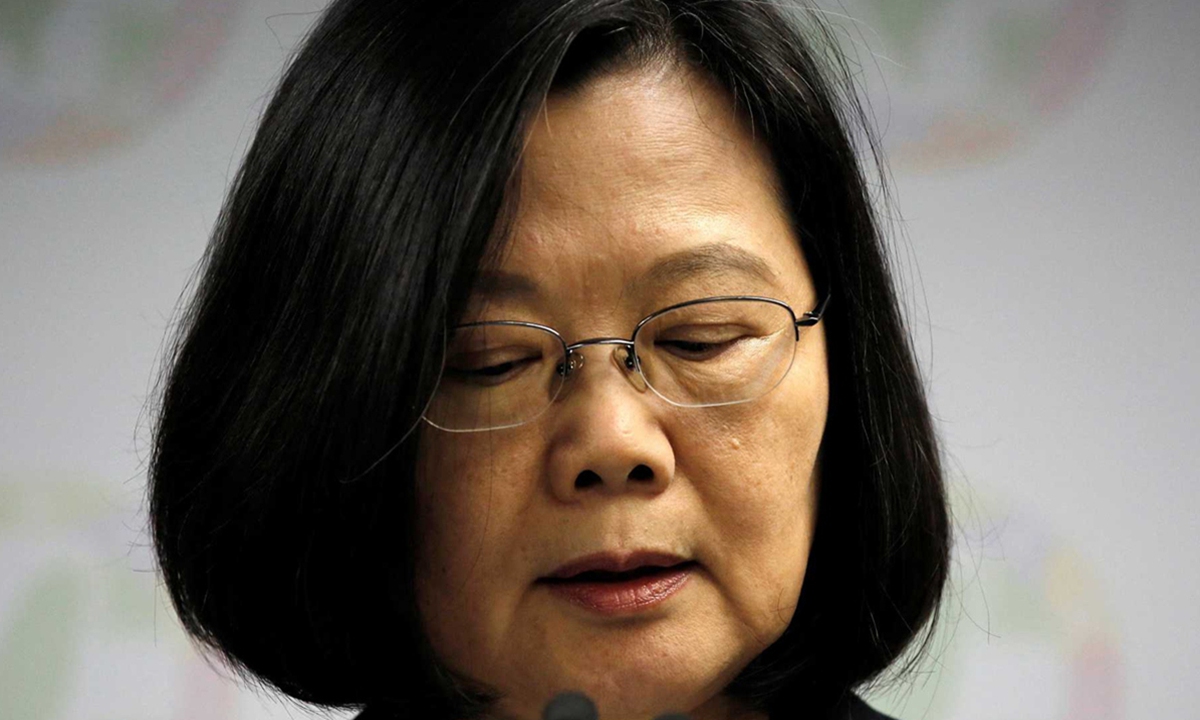
Tsai Ing-wen Photo:VCG
In response to calls from some mainland people for sanctions against Taiwan's regional leader Tsai Ing-wen, experts said the mainland is still leaving some room to create a window for peace.
If Tsai faces reality and refrains from making provocations, she is less likely to be added to the sanctions list. But if she acts more aggressively, then things will be different, Wang said.
The mainland's sanctions are an important measure to break the calculation of the US and DPP authority as the DPP pushes for status quo secession and the US wants to create "one China, one Taiwan" to contain the rise of China, experts said.

